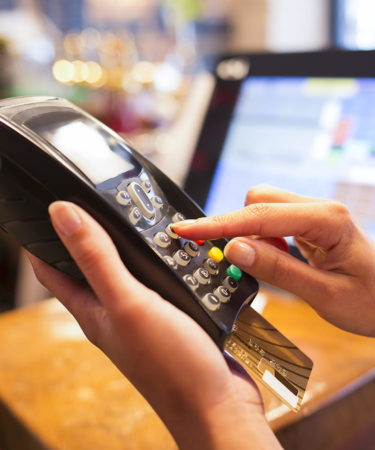Forgetting your card at the bar when you’ve opened a tab sucks. You’re stranded without money until the bar opens the next day, you have to trek all the way back and, on top of the associated humility, there’s the kick-you-while-you’re-down overnight charge added on to your bill.
You might feel helpless. You might have heated thoughts of bucking the system and fighting that extra charge in a court of law. Don’t.
“A bar would most likely win, either in court or in a credit card charge dispute from a consumer, as long as the sign regarding this policy is conspicuous and displayed in a common area,” Charlton Messer, an attorney in Texas at Messer Law Firm, tells VinePair.
Think of seeing the overnight charge warning behind the bar as seeing a price for food on a menu.
“It is similar in principle to ordering a drink from a menu,” Messer says. “If the price is clearly posted, by engaging the bar to make a drink, the consumer agrees to pay the amount written in the menu.”
It’s basic contract law. Both parties — that is, the drinker and the bar — come to an agreement on what the bar can charge, and that agreement can be either vocal or written, Thomas Simeone, a Washington, D.C. attorney at Simeone & Miller, tells VinePair. You don’t want to face that agreement in a courtroom.
“The court will be attempting to determine whether the parties agreed — or had ‘a meeting of the minds’ — on that particular issue,” Simeone says. “If the bar posted a sign in clear view of the customer and the customer decided to use a credit card, then the court is likely to find that the charge was agreed upon.”
Same goes for a credit card charge dispute. Under the Fair Credit Billing Act, credit card companies are required to fix unauthorized charges. That’s your best bet for getting the overnight fee back, Messer says, but it’s not guaranteed. Unless the bar doesn’t have a sign stating it’s overnight charge policy, or the charge is exorbitant, you’re not getting that money back.
The best bet is to just accept your fate, pay the fee, leave a tip and order another shot of tequila.
“The policy itself may not be popular, but is not, on its face, unreasonable and unenforceable,” Simeone says. “I would imagine that the bar would argue that people leaving their card overnight causes the bar work and increased legal exposure by forcing them to hold and protect the card.”
